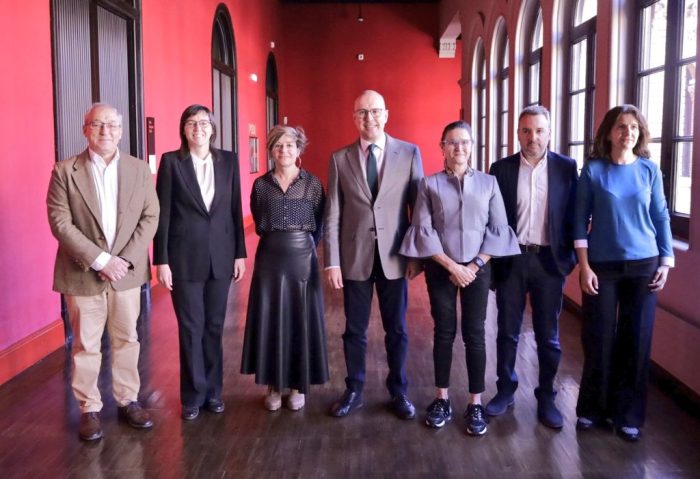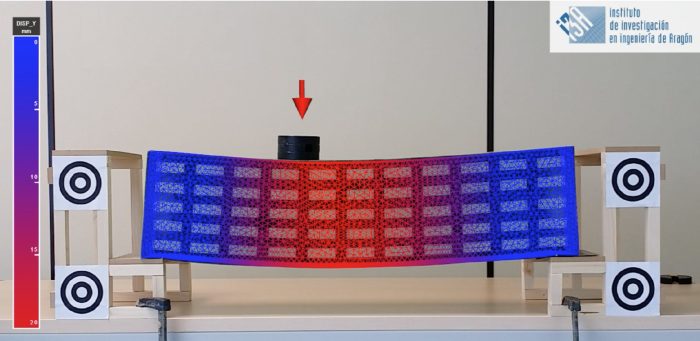From “El Heraldo”:
Author: enia
Coverage of the creation of the Chair.
Report in the newspaper “El Periodico”.
https://www.elperiodicodearagon.com/aragon/2024/04/09/unizar-recibe-1-6-millones-100816976.html
The chair in the media!
Coverage of the press conference of presentation of the Chair in Aragon TV. From minute 10:41.
https://alacarta.aragontelevision.es/informativos/aragon-noticias-1-09042024-1400
Quercus Hernandez, best thesis award from SEMNI
Dear colleagues,
last Friday, March 1st, the SEMNI Executive Committee held an extraordinary meeting to designate the thesis that will receive the SEMNI award in its 2023 edition and that, therefore, will compete as our representative for the ECCOMAS award.
As you know, SEMNI appoints a committee chaired by a member of the Executive Committee, a task that fell to Prof. Francisco Montans on this occasion, and formed by former recipients of the Juan Carlos Simó award for young researchers that SEMNI awards annually. This year the committee was made up of
– Emilio Martínez Pañeda, Oxford U.
– Marcos Latorre, U. P. Valencia
– Esther Reina, U. Sevilla
– María José Gómez, U. Zaragoza
– Xesús Nogueira, University of Coruña
The committee proposed to the executive committee that the prize should go to the thesis “Structure-preserving Deep Learning”, by Quercus Hernández. The thesis can be consulted from the following link,
https://quercushernandez.github.io
We would like to congratulate Quercus and wish him the best of luck in his candidacy for the ECCOMAS prize.
The prize, consisting of a diploma and a cheque for one thousand euros, will be awarded during the gala dinner of the Congress on Numerical Methods to be held in Aveiro, Portugal, next September.
We begin our activities!
This ENIA Chair in AI and sustainability is dedicated to the development of hybrid or physics-informed artificial intelligence techniques for the achievement of sustainable development objectives in industrial production. New disruptive artificial intelligence methodologies will be developed to ensure the sustainability of the product in its entire life cycle, from design and manufacturing to the operational phase and predictive maintenance.
SustAInable revolves around three fundamental concepts that articulate sustainability in the life cycle of all productive activity and that will constitute the axes of the research and training activity of this chair: smart design, smart manufacturing and smart monitoring (smart design, smart manufacturing, smart sensing). The three lines are focused on achieving increased intelligence designed to enable informed decision-making based on ethical, reliable and robust criteria.

